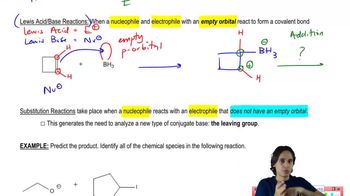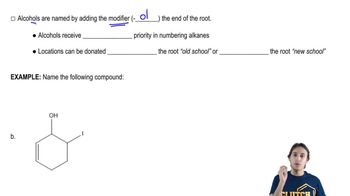Show how you would synthesize each compound using methylenecyclohexane as your starting material.
(e)

 Verified step by step guidance
Verified step by step guidance Verified video answer for a similar problem:
Verified video answer for a similar problem:



 4:21m
4:21mMaster The Mechanism of Alkoxymercuation. with a bite sized video explanation from Johnny
Start learning